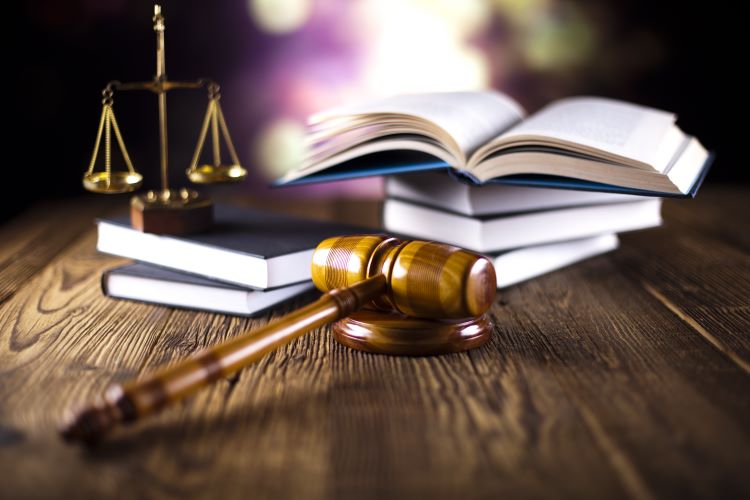Understanding Civil Rights Legal Support: What Individuals Should Consider
Civil rights concerns can arise in everyday situations—from workplace discrimination to issues involving public services. This guide explores how individuals often assess their situation, what kind of cases attorneys in civil rights typically support, and the considerations people weigh when evaluating legal resources. Learn how these attorneys contribute to both personal advocacy and broader policy reform. Understanding the different paths people take when seeking guidance can offer useful insights into how civil rights legal support is structured.

What constitutes a civil rights violation?
Civil rights violations can occur in various settings, including the workplace, housing, education, and public accommodations. Common examples include employment discrimination based on race, gender, age, or disability; denial of housing due to protected characteristics; violations of voting rights; and unequal treatment in public services. Recognizing these violations is the first step in seeking legal support. It’s important to document any incidents, gather evidence, and keep a record of communications related to the potential violation.
How can I determine if I need a civil rights attorney?
If you believe your civil rights have been violated, consulting with a civil rights attorney can help clarify your situation. These legal professionals specialize in cases involving discrimination, constitutional violations, and other civil rights issues. Consider seeking legal advice if you’ve experienced persistent discrimination, retaliation for reporting violations, or if informal attempts to resolve the issue have failed. An initial consultation with an attorney can help assess the strength of your case and determine the best course of action.
What types of cases do civil rights attorneys handle?
Civil rights attorneys handle a wide range of cases, including but not limited to:
-
Employment discrimination
-
Police misconduct and brutality
-
Voting rights violations
-
Housing discrimination
-
Education discrimination
-
Violations of religious freedom
-
Disability rights issues
-
First Amendment violations
These attorneys work to protect individuals’ constitutional rights and ensure equal treatment under the law. They may represent clients in court, negotiate settlements, or advocate for policy changes to address systemic issues.
How do I find a qualified civil rights attorney in my area?
Finding the right civil rights attorney is crucial for effectively addressing your legal concerns. To locate a qualified attorney in your area:
-
Use online legal directories and search for “civil rights attorney” in your location.
-
Contact your state or local bar association for referrals.
-
Reach out to civil rights organizations for recommendations.
-
Seek referrals from trusted friends, family, or colleagues who may have experience with civil rights cases.
When evaluating potential attorneys, consider their experience with cases similar to yours, their track record of success, and their approach to client communication. Many civil rights attorneys offer free initial consultations, which can be an opportunity to assess their suitability for your case.
What are the options for affordable legal aid in civil rights cases?
Access to legal support should not be limited by financial constraints, especially in civil rights cases. Several options exist for individuals seeking affordable legal aid:
-
Legal Aid Organizations: These non-profit entities provide free or low-cost legal services to eligible individuals based on income levels.
-
Pro Bono Services: Many private attorneys offer a portion of their time to pro bono work, taking on cases without charge for those who cannot afford legal fees.
-
Law School Clinics: Some law schools operate clinics where law students, supervised by experienced attorneys, provide free legal assistance to the community.
-
Contingency Fee Arrangements: Some civil rights attorneys may work on a contingency basis, meaning they only get paid if you win your case.
-
Civil Rights Organizations: National and local civil rights groups often provide legal support or can connect individuals with appropriate resources.
What should I consider before filing a civil rights complaint?
Before filing a formal civil rights complaint, consider the following:
-
Timing: Many civil rights claims have specific deadlines or statutes of limitations. Ensure you’re within the appropriate timeframe for filing.
-
Documentation: Gather all relevant evidence, including emails, photographs, witness statements, and official records.
-
Administrative Remedies: Some cases require exhausting administrative remedies before filing a lawsuit. For example, employment discrimination cases often require filing with the Equal Employment Opportunity Commission (EEOC) first.
-
Potential Outcomes: Discuss with your attorney the possible outcomes, including settlement options, and what you hope to achieve through legal action.
-
Personal Impact: Consider the emotional and time commitment involved in pursuing a legal case, as well as potential impacts on your personal and professional life.
-
Alternative Resolutions: Explore whether mediation or other alternative dispute resolution methods might be appropriate for your situation.
| Legal Service Provider | Type of Support | Cost Estimation |
|---|---|---|
| ACLU | Civil Rights Advocacy | Free for eligible cases |
| Legal Aid Society | General Legal Assistance | Free or low-cost based on income |
| NAACP Legal Defense Fund | Civil Rights Litigation | Free for selected cases |
| Private Civil Rights Attorney | Specialized Legal Representation | $200-$500 per hour |
| Law School Clinic | Supervised Student Legal Aid | Free for eligible cases |
Prices, rates, or cost estimates mentioned in this article are based on the latest available information but may change over time. Independent research is advised before making financial decisions.
Navigating civil rights legal support requires careful consideration and often professional guidance. By understanding the nature of civil rights violations, knowing how to find appropriate legal assistance, and being aware of the available resources, individuals can better protect their rights and contribute to a more just society. Whether through formal legal action or alternative resolution methods, addressing civil rights violations is crucial for maintaining the principles of equality and fairness that are fundamental to our legal system.




